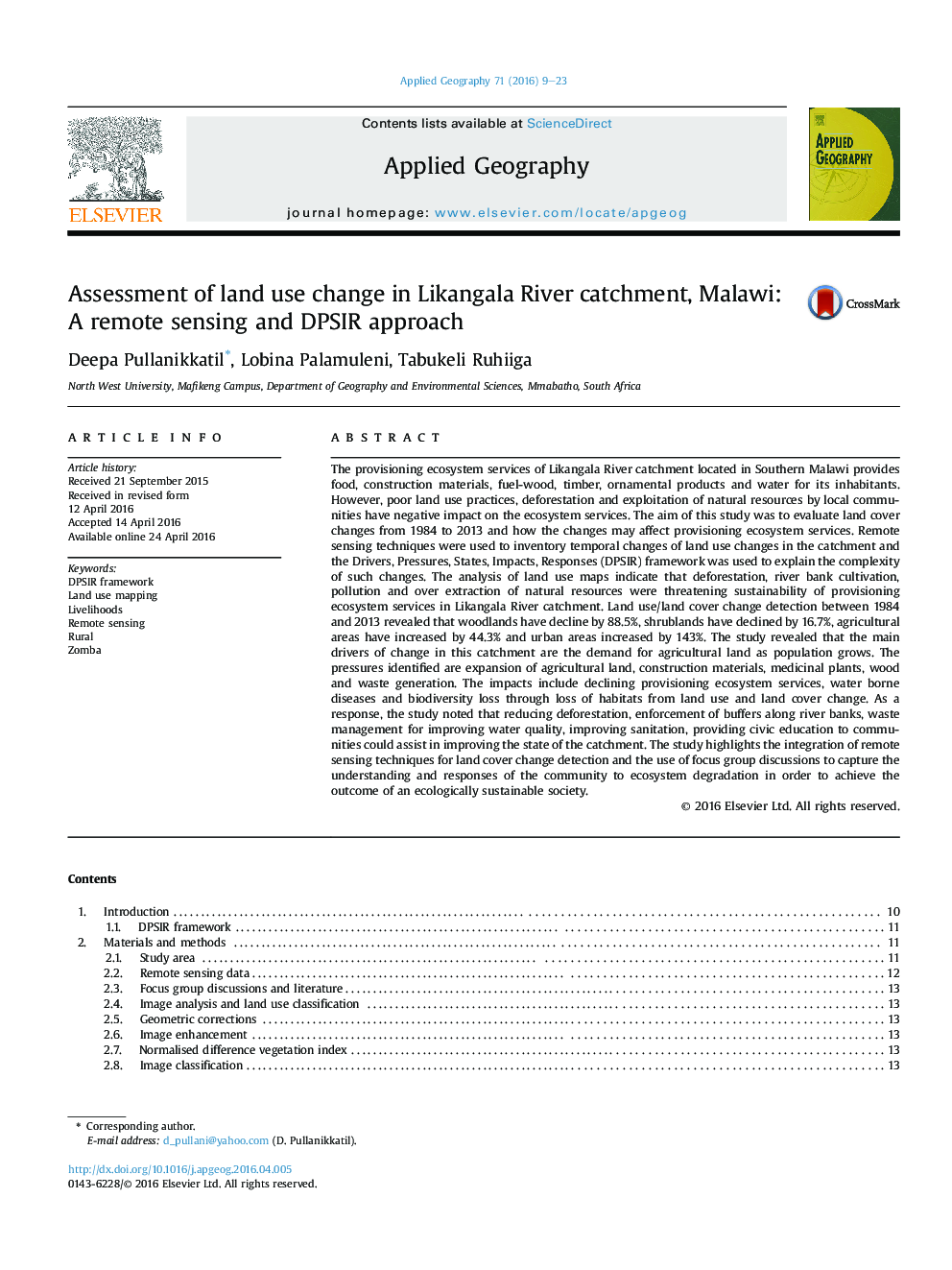| Article ID | Journal | Published Year | Pages | File Type |
|---|---|---|---|---|
| 83145 | Applied Geography | 2016 | 15 Pages |
•Provisioning ecosystem services are very important for livelihoods of rural communities in Likangala River catchment.•The Likangala River catchment is being degraded through anthropogenic activities of deforestation, pressure from agricultural land expansion, river bank cultivation, sand mining and unsustainable extraction of natural resources.•Degradation of the catchment has impacts on health, biodiversity and human well Being.
The provisioning ecosystem services of Likangala River catchment located in Southern Malawi provides food, construction materials, fuel-wood, timber, ornamental products and water for its inhabitants. However, poor land use practices, deforestation and exploitation of natural resources by local communities have negative impact on the ecosystem services. The aim of this study was to evaluate land cover changes from 1984 to 2013 and how the changes may affect provisioning ecosystem services. Remote sensing techniques were used to inventory temporal changes of land use changes in the catchment and the Drivers, Pressures, States, Impacts, Responses (DPSIR) framework was used to explain the complexity of such changes. The analysis of land use maps indicate that deforestation, river bank cultivation, pollution and over extraction of natural resources were threatening sustainability of provisioning ecosystem services in Likangala River catchment. Land use/land cover change detection between 1984 and 2013 revealed that woodlands have decline by 88.5%, shrublands have declined by 16.7%, agricultural areas have increased by 44.3% and urban areas increased by 143%. The study revealed that the main drivers of change in this catchment are the demand for agricultural land as population grows. The pressures identified are expansion of agricultural land, construction materials, medicinal plants, wood and waste generation. The impacts include declining provisioning ecosystem services, water borne diseases and biodiversity loss through loss of habitats from land use and land cover change. As a response, the study noted that reducing deforestation, enforcement of buffers along river banks, waste management for improving water quality, improving sanitation, providing civic education to communities could assist in improving the state of the catchment. The study highlights the integration of remote sensing techniques for land cover change detection and the use of focus group discussions to capture the understanding and responses of the community to ecosystem degradation in order to achieve the outcome of an ecologically sustainable society.
